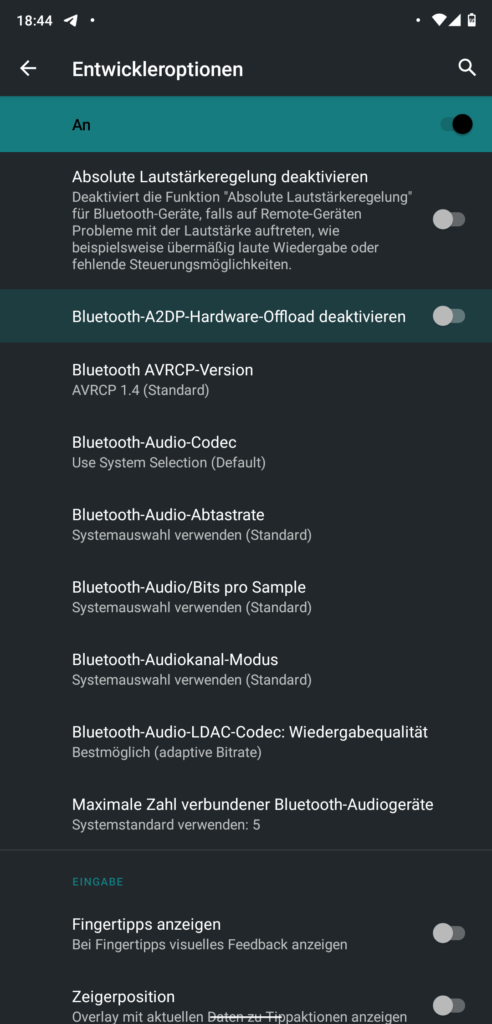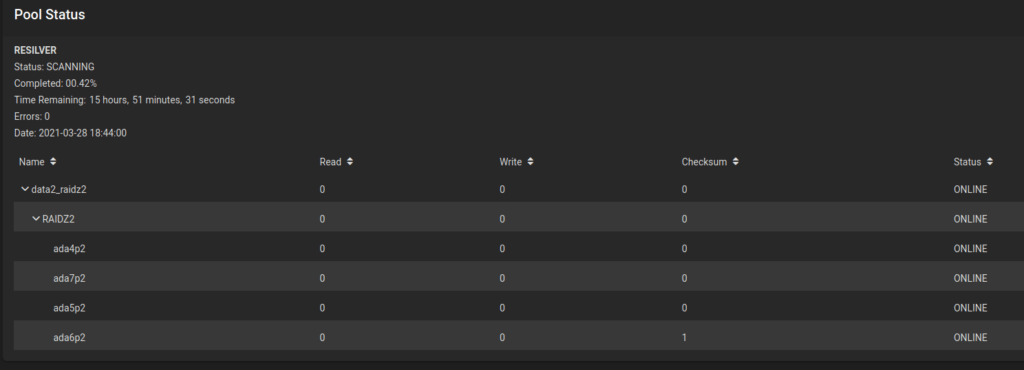Am I FLoCed?
FLoC = Federated Learning of Cohorts
“FLoC runs in your browser. It uses your browsing history from the past week to assign you to a group with other “similar” people around the world. Each group receives a label, called a FLoC ID, which is supposed to capture meaningful information about your habits and interests.”
[Software] Ventoy
“Ventoy is an open source tool to create bootable USB drive for ISO/WIM/IMG/VHD(x)/EFI files.
With ventoy, you don’t need to format the disk over and over, you just need to copy the ISO/WIM/IMG/VHD(x)/EFI files to the USB drive and boot them directly.”
Download: https://github.com/ventoy/Ventoy/releases
Installation: https://www.ventoy.net/en/doc_start.html
sudo sh Ventoy2Disk.sh -i /dev/sdx
[Android] Upgrade to LineageOS 17.1 – fix audio bluetooth issue
After upgrading to LineageOS 17.1 I wasn’t able to play any audio via bluetooth connection from my Xiaomi Mi 8.
To fix this issue, just go to developer options and disable Bluetooth-AD2P-Hardware-Offload and reboot your phone.

[Android] Upgrading LineageOS 16.0 to 17.1 on my Xiaomi Mi 8 (dipper)
Install the Android Debug Bridge (ADB)
https://wiki.lineageos.org/adb_fastboot_guide.html
https://github.com/M0Rf30/android-udev-rules#installation
# check if device is found
adb devices
# reboot into sideload modus
adb reboot sideload
Or manually boot into TWRP recovery, holding Volume Up + Power when the phone is off. Navigate to Advanced-> ADB Sideload.
Update MIUI Firmware
If your current MIUI Firmware does not support Android 10, you have to update it first.
Download the newest MIUI Firmware for your device from https://xiaomifirmwareupdater.com/firmware/dipper/.
Flash the new Firmware via TWRP or via ADB sideload.
adb sideload Downloads/fw_dipper_miui_MI8Global_V12.0.2.0.QEAMIXM_4e38c51916_10.0.zip
Download and flash new LineageOS image
I’m using the LineageOS fork LineageOS for microG. Download it from here: https://download.lineage.microg.org/dipper/ (MI 8 = dipper)
The upgrade steps are the same as for the official rom: https://wiki.lineageos.org/devices/dipper/upgrade. In my case only flashing the new image.
adb sideload Downloads/lineage-17.1-20210327-microG-dipper.zip
[ZFS] Activate/deactivate readonly property on dataset
# get readonly property
zfs get all | grep readonly
# deactivate readonly
zfs set readonly=off rpool/dataset
# activate readonly
zfs set readonly=on rpool/dataset
[ABAP] Parse SF Entity Key from URI
METHOD get_entitykey_from_uri.
" Pattern: Entity\((.*)\),
DATA(pattern) = iv_entity && `\((.*)\)`.
TRY.
DATA(matcher) = cl_abap_matcher=>create( pattern = pattern
text = iv_uri
ignore_case = abap_true ).
CATCH cx_sy_invalid_regex.
ENDTRY.
TRY.
DATA(lt_matches) = matcher->find_all( ).
ASSIGN lt_matches[ 1 ] TO FIELD-SYMBOL(<s>).
rv_entity_key = substring( val = iv_uri off = <s>-offset len = <s>-length ).
CATCH cx_sy_no_current_match.
ENDTRY.
ENDMETHOD.
[TrueNAS] Replacing failed disk
Yesterday I got a mail about a failed disk in my TrueNAS system.

So I logged in and checked the Alerts and also zpool status.


Luckily I had an unused disk lying around. So just did a quick look in the TrueNAS Wiki (https://www.truenas.com/docs/hub/tasks/advanced/disk-replace/) and switched the drives…
After 5 minutes everything was done and the resilvering started.



It took about 4 hours for the 3TB disk. A zool clear poolname removes the error message and the pool was back online.

Hermetosphäre
Blog von Ulf Soltau: https://ulfsoltau.wordpress.com/
Überblick geeigneter Pflanzen: https://www.dropbox.com/s/0o5ednj25hfjcf8/Pflanzen%20f%C3%BCr%20die%20Hermetosph%C3%A4re%20%281%29.xls?dl=0
Pflanzen bestellen: bens-jungle.com/ und terra-erfordia.de/
Interessantes Experiment: Biosphäre 2
[Deutsch] Synonyme für gut
| nicht ganz so gut wie “gut” | besser als “gut” |
|---|---|
| achtbar | ausgezeichnet |
| angebracht | außergewöhnlich |
| angemessen | außerordentlich |
| angenehm | beeindruckend |
| ansehnlich | beispielhaft |
| ausreichend | bewundernswert |
| beachtlich | blendend |
| befriedigend | brillant |
| erfreulich | einwandfrei |
| fair | erstaunlich |
| geeignet | erstklassig |
| gefällig | fabelhaft |
| günstig | glänzend |
| passend | großartig |
| recht | herrlich |
| respektabel | hervorragend |
| solide | köstlich |
| perfekt | |
| phänomenal | |
| sensationell | |
| tadellos | |
| toll | |
| überdurchschnittlich | |
| vorbildlich | |
| vorzüglich |
